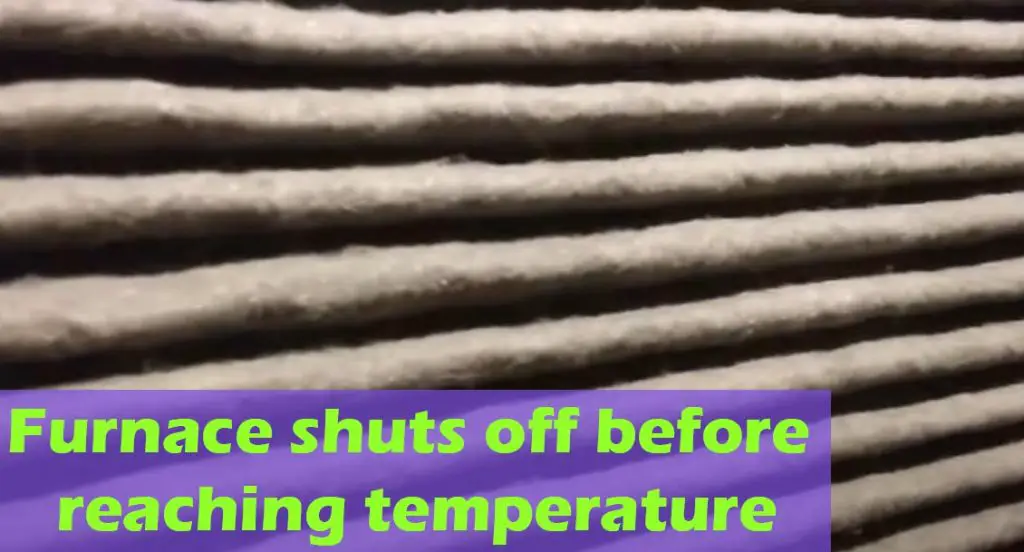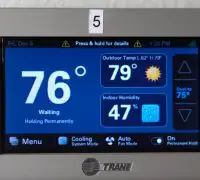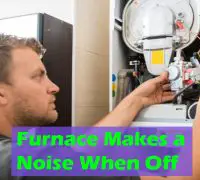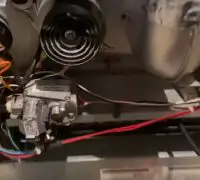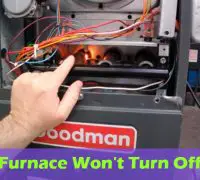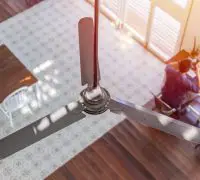If you have a furnace heating your house, you have probably experienced one or two problems with it. One of the most common problems with furnaces is when they shut off before it reaches the desired temperature. It’s a serious issue that requires proper diagnosis and fixing. When not addressed on time, the such issue might cause higher energy bills and even expensive repairs on the furnace. If you postpone fixing for too long, you might even have to replace the furnace.
Page Table of Contents
Why does the furnace shut off before reaching the desired temperature?
Several issues can shut your furnace off before reaching the desired temperature. Keep reading to discover the possible problems and their fixes, too—simply knowing the cause without fixing it won’t be of very much help.
Low airflow
Low airflow is a common reason the furnace shuts off before reaching the set temperature. Airflow could be lower than usual for several reasons:
The air filters are dirty
Air filters require cleaning and even replacement every few months. The filters get filthy and clogged if you don’t clean them regularly. Therefore, the heat exchanger will retain heat and cause overheating. You should replace the air filters every three months; if you have allergies or pets, you must do it more frequently. Change the air filters every two months if you have pets and even monthly if you struggle with severe allergies.
The air supply vents are closed or blocked
When the furnace shuts off without achieving the set temperature, you should examine the air vents to see if they are closed or blocked. All the vents have to be open for the furnace to operate correctly. Even vents in the rooms you don’t use will have to be opened. When the heat exchanger doesn’t get enough air because of blocked air vents, it won’t be able to circulate enough heat. The heat will build up and can shut the furnace down before reaching the desired temperature.
The blower wheel is dirty
A dirty blower wheel is another reason the furnace shuts down too quickly. The blower wheel features blades that push the air. Should the blades be dirty, they won’t work as expected and even fail to work. You can avoid dirt building up on the blower wheel by replacing the air filters on a regular basis. When you skip replacing the air filters, you risk expensive repairs on the blower wheel and the furnace.
The thermostat is defective
The thermostat monitors the furnace and a defective or broken thermostat will make the furnace operate erratically (shutting off too quickly). Several problems can make the thermostat not operate as it should. The wiring might be old and require replacing, the thermostat could need new batteries, or the thermostat could be improperly located.
The location will alter the temperature reading when the thermostat is too close to a heat source; the thermostat in sunny rooms or near heat registers are such locations. As a result, the thermostat will turn on and off erratically.
Check out to see if the thermostat needs new batteries and act accordingly. If the batteries weren’t the problem, you should contact a professional to replace the old wiring or simply install the thermostat in a good location.
The flame sensor is dirty
A dirty flame sensor might be the cause when a furnace shuts off too quickly. The flame sensor is a safety feature that informs the furnace of a present flame when the gas valve is open. When it doesn’t detect a flame, the sensor will shut off the gas valve so that gas doesn’t travel inside the house and cause a fire. Should the flame sensor be dirty or corroded, it won’t be able to detect the flame and turn off the gas valve. The system will shut down, so the furnace won’t heat your home. When the furnace is cycling on and off too quickly, you should call in a certified HVAC technician for further investigation.
The blower motor is faulty
The blower motor is responsible for circulating the heated air throughout the house. Most of the time, the furnace won’t operate when the blower motor is off. If it happens, no air blows over the heat exchanger so the furnace will shut off. You can check it out and see if the blower motor is the problem. Place your hand near the vents and observe if the air is coming out. When there’s no airflow or the flow is weak, the blower motor is most likely the reason for the erratic shutting down of the furnace.
A problem with the flue pipe
The flue pipe (the exhaust vent) is placed on the roof and can make the short furnace cycle. It happens when debris, dirt, leaves, sticks, or bird or animal nest get inside the pipe and cause a blockage. The blockage will make the hot gases build up inside the furnace, causing its overheating.
Furnaces have safety features against overheating and will shut off when overheating, even though they haven’t reached the desired temperature.
The furnace is too big for your home
When the furnace is too big for a house, it will shut off before achieving the set temperature. Unfortunately, there’s no solution but to replace the furnace with one appropriate for your house’s heating needs. If the furnace is too big for your house, it will heat the house too quickly, but the temperatures won’t be even throughout the house. The house will get cold shortly, so that the furnace will turn on again.
The contractor that installed the first furnace probably didn’t perform a Manual J Heat Load to identify the best-size furnace for your house.
A brief conclusion
A furnace turning off before reaching the desired temperature isn’t a problem that will solve on its own. We recommend you examine or have a certified HVAC technician inspect the furnace. If you postpone troubleshooting, you risk expensive repairs and even furnace replacement. Better safe than sorry, so stay on top of furnace issues with regular preventive maintenance and a detailed inspection once a year.
